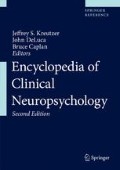Access this chapter
Tax calculation will be finalised at checkout
Purchases are for personal use only
Further Readings
Bourne, L. E. (1963). Some factors affecting strategies used in problems of concept formation. American Journal of psychology, 75, 229–238.
Bruner, J. S., Goodnow, J., & Austin, G. A. (1956). A study of thinking. New York: Wiley.
Hampton, J. A. (1981). An investigation of the nature of abstract concepts. Memory and Cognition, 9, 149–156.
Hampton, J. A. (1995). Psychological representation of concepts. In M. A. Comway (Ed.), Cognitive models of memory. Cambridge, MA: MIT Press.
Hunt, R. R., & Ellis, H. C. (2003). Fundamentals of cognitive psychology. Madison: Brown & Benchmark.
Lamberts, K., & Shanks, D. (Eds.). (1997). Knowledge, concepts, and categories. Cambridge, MA: MIT Press.
Li, J., Mei, C., Xu, W., & Qian, Y. (2015). Concept learning via granular computing: A cognitive viewpoint. Information Sciences, 298447–298467. https://doi.org/10.1016/j.ins.2014.12.010.
Macnamara, J. (1982). Names for things: A study of human learning. Cambridge, MA: MIT Press.
Medin, D. L. (1989). Concepts and conceptual structure. American Psychologist, 44, 1469–1481.
Mervis, C. B., & Rosch, E. (1981). Categorization of natural objects. Annual Review of Psychology, 32, 89–115.
Nisbett, R. E. (Ed.). (1993). Rules for reasoning. Hillsdale: Erlbaum.
Novak, J. D., & Cañas, A. J. (2010). A teoria subjacente aos mapas conceituais e como elabora-los e USA- los. Revista Práxis Educativa, 5(1), 9–29. Website for the reference above (in English) http://cmap.ihmc.us/Publications/researchPapers/theorycmaps/TheoryunderlyingConceptMaps.bck-11-01-06.htm.
Smith, E. E. (1990). Categorization. In D. N. Osherson & E. E. Smith (Eds.), Thinking: An invitation to cognitive science (Vol. 3, pp 33–53). Cambridge, MA: MIT Press.
Smith, E. E., & Medin, D. L. (1981). Categories and concepts. Cambridge, MA: Harvard University Press.
Wason, P. C. (1960). On the failure to eliminate hypotheses in a conceptual task. Quarterly Journal of Experimental Psychology, 12, 129–140.
Author information
Authors and Affiliations
Corresponding author
Editor information
Editors and Affiliations
Rights and permissions
Copyright information
© 2018 Springer International Publishing AG, part of Springer Nature
About this entry
Cite this entry
Parente, R., St. Pierre, M., Chaney, GA. (2018). Concept Learning. In: Kreutzer, J.S., DeLuca, J., Caplan, B. (eds) Encyclopedia of Clinical Neuropsychology. Springer, Cham. https://doi.org/10.1007/978-3-319-57111-9_1088
Download citation
DOI: https://doi.org/10.1007/978-3-319-57111-9_1088
Published:
Publisher Name: Springer, Cham
Print ISBN: 978-3-319-57110-2
Online ISBN: 978-3-319-57111-9
eBook Packages: Behavioral Science and PsychologyReference Module Humanities and Social SciencesReference Module Business, Economics and Social Sciences

